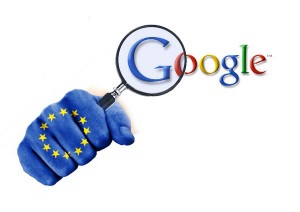The European Commission is still determining Google’s degree of dominance, Google is providing an WiFi location opt-out service; Google has announced that it will delete 3.6 million Dutch WiFi SSIDs, and Google Analytics has been un-banned in Germany.
European Commission Still Determining Google’s Dominance
 In the European antitrust investigation that started last November and has escalated to 10 complaints since, the European Commission is still determining Google’s degree of dominance in the web search industry. Joaquin Almunia, a European Competition Commissioner, told Reuters, “We are trying to determine whether the company holds a dominant position in Internet search.”
In the European antitrust investigation that started last November and has escalated to 10 complaints since, the European Commission is still determining Google’s degree of dominance in the web search industry. Joaquin Almunia, a European Competition Commissioner, told Reuters, “We are trying to determine whether the company holds a dominant position in Internet search.”
Even if Google is established as dominant, they may not face penalties. Google would face penalties only if they abused a dominant position by engaging in “conduct that protects or extends dominance by illegitimate means,” according to Almunia.
“We still have to conclude whether this is the case for Google,” Almunia said.
Google Provides Opt-Out Service for WiFi Locations
Individuals and businesses that don’t want their WiFi network used for location-finding services on smartphones can opt out, thanks to a soon-to-be released Google service. Google is building the service “at the request of several European data protection authorities.”
Google’s Android smartphones can, at the device owner’s discretion, use publicly accessible WiFi access data to pinpoint their current location. The feature works by finding the nearby WiFi networks and matching them with a registered location.
Google’s collection of WiFi data has come under fire previously, with several European countries threatening or pursuing legal action.
Google to Delete Dutch WiFi Data
Google announced that WiFi data collected in the Netherlands will be deleted. This move is being made at the behest of the Dutch Data Protection Authority, who gave an order earlier this year that all WiFi data was to be deleted.
Google previously indicated that they were opposed to the mass deletion since it would impact information that wasn’t personally identifiable but that remained useful for other Google services, such as the location finding. However, as reported by Web Wereld, Google made a statement on September 12 indicating that they wouldn’t fight the Dutch Data Protection Authority’s decision, instead deleting 3.6 million SSIDs and other information connected to Dutch WiFi networks.
Germany Lifts Ban on Google Analytics
After long discussions with Hamburg privacy regulators regarding Google Analytics, Google has receive a go-ahead on their data tracking service. “We are pleased that the Hamburg Data Protection Officer and Freedom of Information Today has released a clear statement regarding compliance with the German data protection law by Google Analytics,” said Google in a statement.
German website owners can use Analytics immediately, but must agree to Google’s updated terms, update their own privacy policy to include legally mandated statements about the use of Analytics, and enable the IP mask function on Analytics to prevent the storage of full IP addresses.
Google Analytics was banned in Germany in 2009, and the German authorities went as far as fining companies that used Analytics. The new policies and the end of the ban represent the first accord between Google and the German government on this topic.
 In the European antitrust investigation that started
In the European antitrust investigation that started